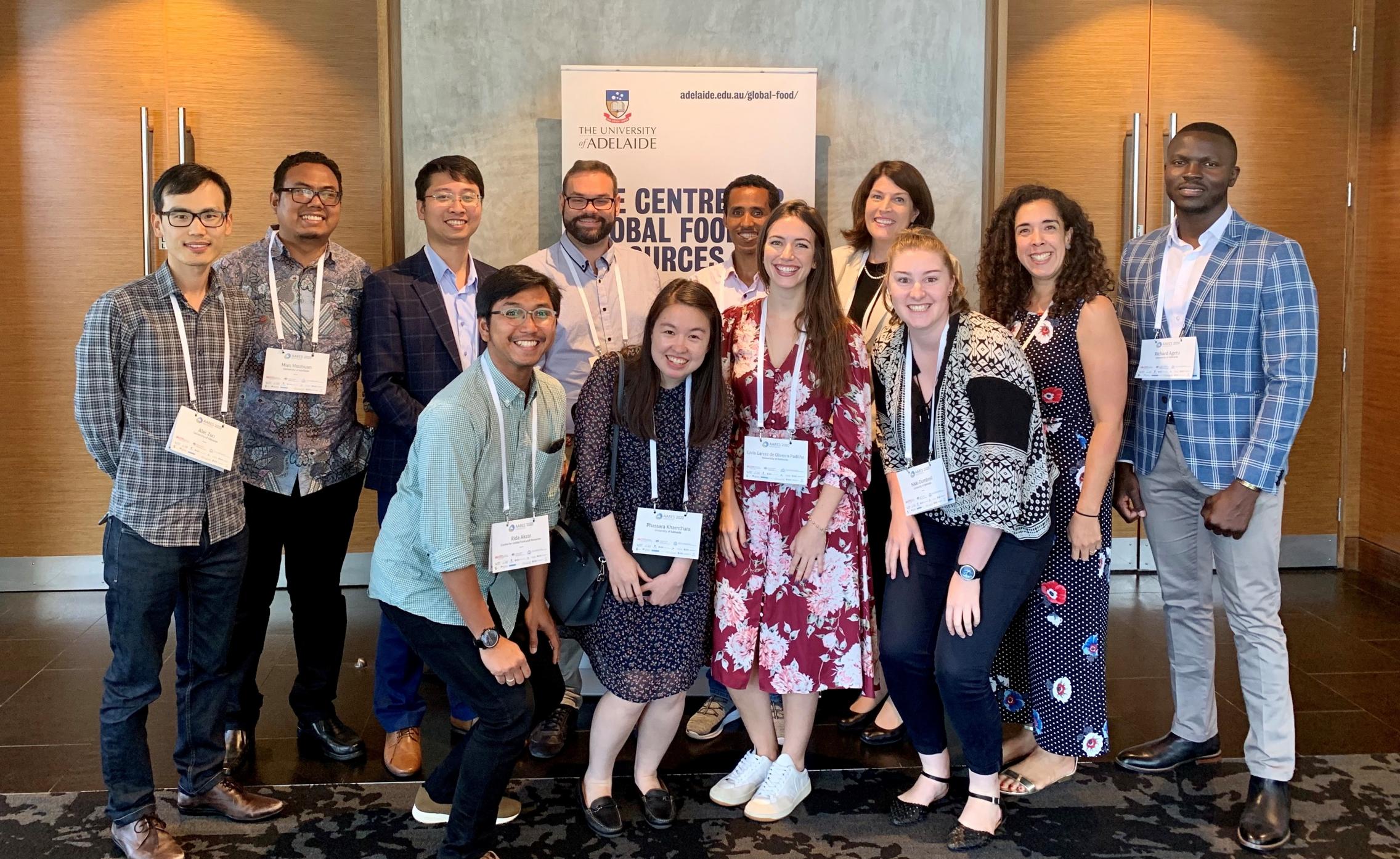Highlights from the 2020 AARES conference

GFAR researchers at the AARES conference in Perth. Also at the conference but missing in the photo were Professor Sarah Wheeler and John Kandulu.
The annual conference of the Australasian Agricultural and Resource Economics Society (AARES) was held in Perth last week.
Each year the conference hosts Australian and international economists working on issues spanning agricultural, environmental and resource economics, and agribusiness. This year 13 GFAR researchers attended the conference to present research and learn about current research, develop research and communication skills for applied economists and participate in discussions about science-economics-policy interactions.
In this article, GFAR PhD student, Nikki Dumbrell, details some of the key research themes from the conference.
Key themes at this year’s conference
Water and drought policy
Each year the conference is an opportunity to bring together much of the latest research into the economics of water management in the Murray-Darling Basin. Topics discussed in a dedicated Murray-Darling session included the local and regional-scale economic impacts of past and future water recovery for the environment, implications of reforms to the water market, and the impacts of substitution of surface and groundwater for consumptive use.
In addition to local perspectives, Professor Michael Hanemann’s (Arizona State University and University of California Berkeley) opening keynote address detailed similarities and differences in water rights and water markets in Australia and the United States. For more on the topic, I refer you to his recent paper in Oxford Reviewof Economic Policy written with GFAR’s Professor Mike Young.
Bushfire economics
The conference played host to a very topical discussion on bushfire economics. Bushfire economics is underpinned by concerns about the distribution of impacts and benefits and opportunity costs of different management decisions. Importantly, many of the impacts and benefits do not have market values and as such can be difficult to measure. For example, the cost of smoke blanketing large areas for extended periods of time, or the cost of lives lost are difficult to quantify. Despite the challenges, Professor David Pannell (The University of Western Australia) and his colleagues have been working on these issues with the Bushfire and Natural Hazards Co-operative Research Centre. At the conference he presented lessons learned from this body of work, and also shared those in an interview on the Country Hour on Thursday 13 February 2020 ( listen from 34 minutes and 15 seconds).
Changing diets and the implications for multiple actors
Six different presentations at the conference were concerned with meat consumption patterns. Among these were presentations from GFAR’s Professor Wendy Umberger and Livia Padilha detailing their research about reasons Australian consumers are reducing their meat intake, and Australian attitudes to alternative meat types, including lab-grown meat. Alongside these contributions, Professor Ross Kingwell (Australian Export Grains Innovation Centre and The University of Western Australia) examined the potential implications of changing meat consumption patterns, coupled with climate change, and changing grain productivity and quality in other countries on the demand for grain in Australia. You can listen to Ross speak about implications of changing meat demand for the grains sector from 5 minutes and 47 seconds and to Wendy speak about why consumers are changing their meat consumption patterns from 44 minutes and 40 seconds on the South Australian Country Hour on Tuesday 18 February 2020.
